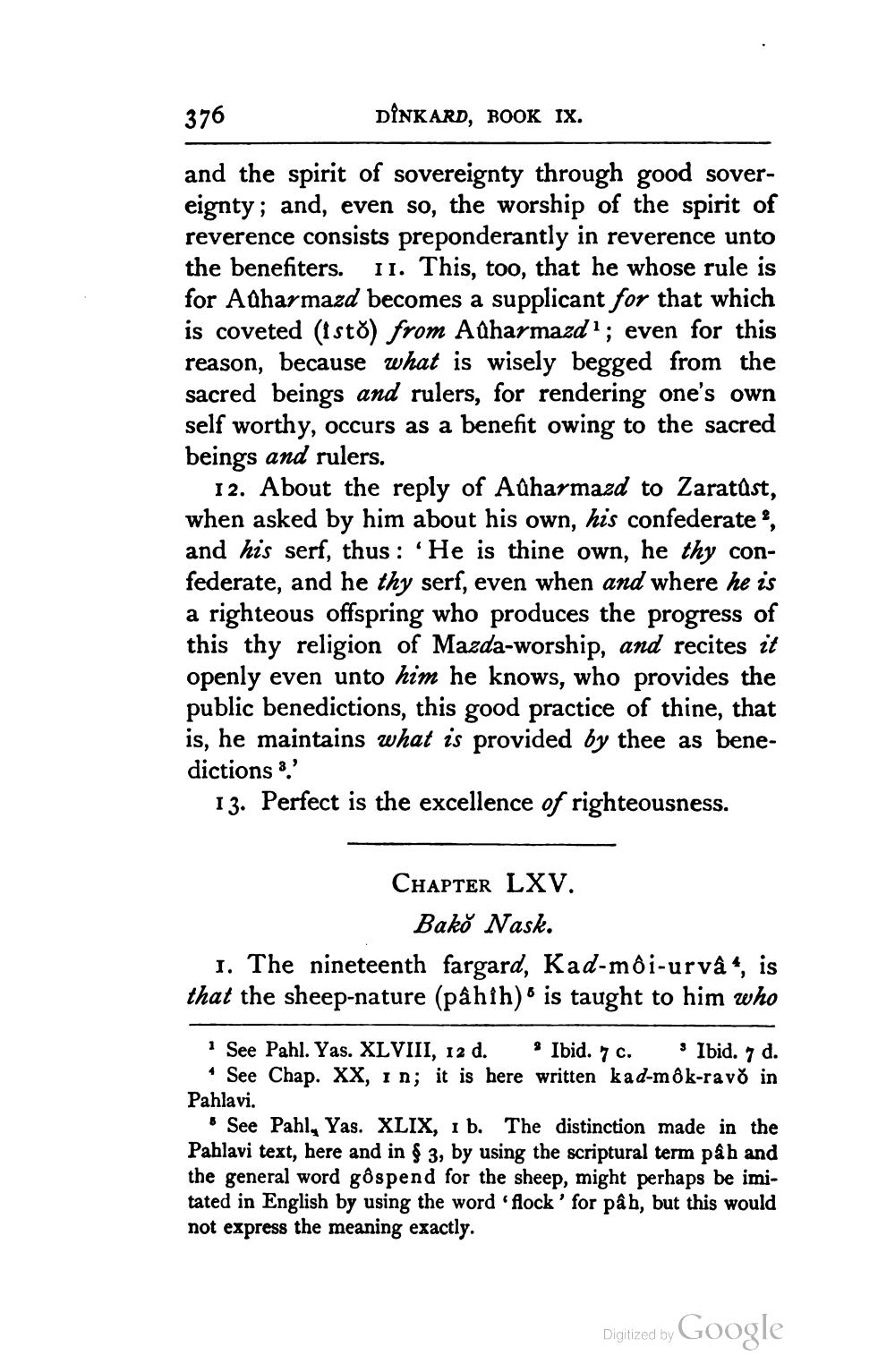________________
376
DÎNKARD, BOOK IX.
and the spirit of sovereignty through good sovereignty; and, even so, the worship of the spirit of reverence consists preponderantly in reverence unto the benefiters. 11. This, too, that he whose rule is for Adharmazd becomes a supplicant for that which is coveted (isto) from Adharmazdı; even for this reason, because what is wisely begged from the sacred beings and rulers, for rendering one's own self worthy, occurs as a benefit owing to the sacred beings and rulers.
12. About the reply of Adharmazd to Zaratust, when asked by him about his own, his confederate ?, and his serf, thus : 'He is thine own, he thy confederate, and he thy serf, even when and where he is a righteous offspring who produces the progress of this thy religion of Mazda-worship, and recites it openly even unto him he knows, who provides the public benedictions, this good practice of thine, that is, he maintains what is provided by thee as benedictions 3.'
13. Perfect is the excellence of righteousness.
CHAPTER LXV.
Bakó Nask. 1. The nineteenth fargard, Kad-môi-urva“, is that the sheep-nature (pâhih) is taught to him who
1 See Pahl. Yas. XLVIII, 12 d. Ibid. 7 . Ibid. 7 d.
+ See Chap. XX, In; it is here written kad-mok-ravo in Pahlavi.
See Pahl, Yas. XLIX, ib. The distinction made in the Pahlavi text, here and in $ 3, by using the scriptural term pâh and the general word gôspend for the sheep, might perhaps be imitated in English by using the word 'flock' for pâh, but this would not express the meaning exactly.
Digitized by Google




